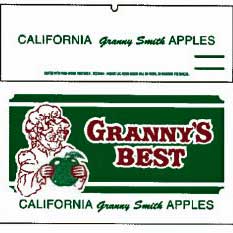Starting in October 2014 when the caramel apple Listeria outbreak was claiming its first victims, public health officials in states like Minnesota, Arizona, Missouri, New Mexico and Texas were about to receive the first indications of a lethal food poisoning problem from an unlikely source. It took two months to coalesce, but state reporting of individual cases of listeriosis and federal monitoring of those reports with a system of genetic fingerprinting tied the cases together: pre-packaged, commercially produced caramel apples were making people deathly ill and sending them to the hospital.
 Listeria lawsuit court records, state health agency documents, outbreak reports from the Centers for Disease Control and Prevention (CDC) and an investigation summary filed by the Food and Drug Administration (FDA) were reviewed by Food Poisoning Bulletin to sequence the outbreak. The scientific data and other findings will be replayed this year in state and federal courts as Listeria lawyers for caramel apple outbreak victims seek to hold the purveyors of the defective apples accountable.
Listeria lawsuit court records, state health agency documents, outbreak reports from the Centers for Disease Control and Prevention (CDC) and an investigation summary filed by the Food and Drug Administration (FDA) were reviewed by Food Poisoning Bulletin to sequence the outbreak. The scientific data and other findings will be replayed this year in state and federal courts as Listeria lawyers for caramel apple outbreak victims seek to hold the purveyors of the defective apples accountable.
By October 25, three people were discovered to be infected with the same strain of Listeria monocytogenes, a human pathogen that has been linked in recent years to outbreaks in ready-to-eat meats, cheeses, sprouts and whole cantaloupes.
On December 18, the Minnesota Department of Health announced the caramel apple outbreak in a news release saying two state residents were dead and two others had been hospitalized. They had fallen ill in October and November after eating caramel apples purchased from Cub Foods, Kwik Trip, and Mike’s Discount Foods, which carried Carnival brand and Kitchen Cravings brand caramel apples. “The investigation is evolving, and other caramel apple brands and locations may also be impacted,” the health agency said.
The next day, the CDC reported 28 case patients from 10 states: Arizona (4), California (1), Minnesota (4), Missouri (5), New Mexico (5), North Carolina (1), Texas (4), Utah (1), Washington (1), and Wisconsin (2). Nine illnesses were associated with a pregnancy. Five case patients had died. Three children had battled invasive Listeria meningitis.
On December 22, the FDA and the California Department of Public Health (CDPH) briefed apple supplier Bidart Bros. on the status of the investigation and the company recalled all Granny Smith apples sold in 2014. Three caramel apple makers supplied by Bidart subsequently announced related recalls.
 On December 23, California Food Emergency Response Team swabbed surfaces likely to come into contact with apples at Bidart’s packing facility. Analyses later revealed that several samples contained Listeria monocytogenes and Bidart expanded its recall to include all Gala apples from the season.
On December 23, California Food Emergency Response Team swabbed surfaces likely to come into contact with apples at Bidart’s packing facility. Analyses later revealed that several samples contained Listeria monocytogenes and Bidart expanded its recall to include all Gala apples from the season.
On January 8, 2015, pulsed-field gel electrophoresis (PFGE) analysis of the Listeria monocytogenes isolated from Bidart Bros. confirmed the DNA match with the outbreak strain of the organism. The same Listeria germs also were found by authorities in whole apples from Bidart collected along the distribution chain.
The next day, a Listeria pregnancy lawsuit was filed in U.S. District Court in Albuquerque, New Mexico, against Bidart Bros. and the retailer that sold contaminated caramel apples to a relative of an expecting mother. Cathy Jones was hospitalized with listeriosis and doctors said the disease caused her to deliver her baby prematurely. Cathy recovered and her child survived after four weeks in the neo-natal intensive care unit at Lovelace Hospital in Albuquerque.
Another caramel apple lawsuit was filed in California on behalf of a woman from Felton, California, who died with listeriosis. The first court hearing in that case was scheduled for April 21.
On Feb. 12, the CDC announced the outbreak was over. Seven case patients died, but not all of them from listeriosis. 35 people in 12 states were sickened and 11 illnesses were pregnancy related. The leading states in the outbreak are Minnesota, Wisconsin, California, Nevada, New Mexico, Missouri, Texas and Arizona.




